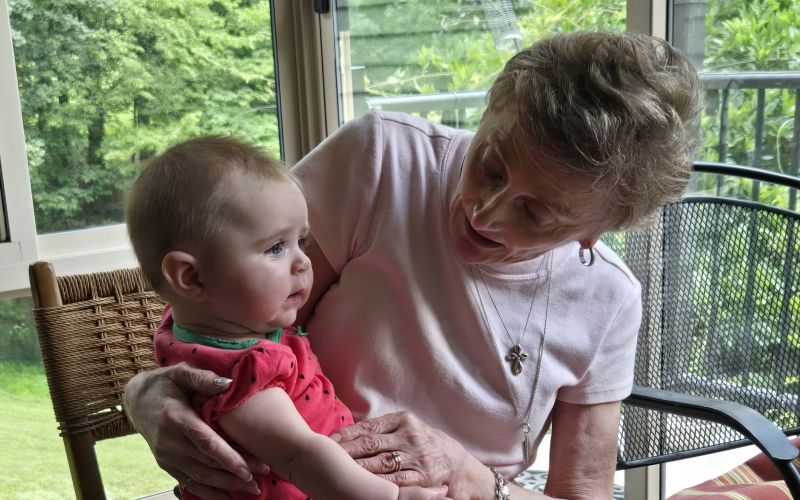Other Categories
As we discussed in the welcome to the blog, from time to time we will be featuring guest posts from patient safety advocates, physicians, experts in C. diff and other healthcare acquired infections. We are excited to have John T. James as our first guest blogger. I met John back in October at the Consumers Union Safe Patient Project Summit, an annual gathering of patient safety advocates facilitated by the organization that publishes Consumer Reports. Like most patient safety advocates, John came to this work following a personal tragedy. In 2002, his son John Alexander James, died at the age of 19 due to medical errors at a hospital in central Texas. Through his organization, Patient Safety America, John advocates for patient rights, both locally in Texas and nationwide. – Christian
The Patient’s Voice
By John T. James
In my opinion, the root cause of the minimal improvement in patient safety is that the medical care industry and the legislators they help purchase refuse to allow the voice of patients to be heard. Plenty of evidence is mounting that the voice of the patient speaks of harmful adverse events that the medical care industry has overlooked or ignored. To my knowledge the first evidence of this was a study by Weismann showing that far more harmful events were identified by patients than appear in hospital medical records.
Two more recent studies add to the call for better listening to patients or their advocates. One of the reports published last fall involved 2600 patients discharged from Massachusetts hospitals in 2003. The patients were asked about “negative” events during their hospitalization. The patients reported 1170 negative events, of which physician reviewers classified 71% as adverse events. Adverse effects resulting from medication changes were the major cause of these events. The authors conclude that “Patient reports complement other incident-detection methods by providing information that is credible and unavailable from other sources.” A study of hospitalized children in Canada reinforces findings from the United States.
The investigators asked families after a child was discharged from a hospital to identify adverse events and near misses that occurred while their child was hospitalized. The survey involved patients treated at the British Columbia Children‟s Hospital in the month of November 2009. There were 544 family responses in which 321 events were reported. Investigators deemed 153 of these to be legitimate patient safety concerns. Not too surprisingly, only 8 of these were reported by hospital staff. The authors conclude that “almost half (153/321) of the family reports represented legitimate patient safety concerns. Families appeared capable of providing
valuable information for improving the safety of pediatric inpatients.”
Despite the lack of transparency typically offered to patients by hospitals, patients and their families are able to provide a valuable adjunct to identification of harmful adverse events. Make certain that during your hospital stay you remain vigilant for harm caused to you and that once you are discharged, that harm is reported to the hospital CEO, the hospital‟s accrediting agency and the hospital board of directors. Insist on some kind of response to your report. If you get little or no response, then report your experience to your state health department, and copy your legislators (state and national). If Medicare is paying the bills, then report your experience to the Centers for Medicare and Medicaid Services.
You have an ethical obligation to report harmful events in order to improve patient safety for those who will follow you or a loved one as a patient in a hospital. Do it for your friends, your children and your grandchildren.
John T. James earned his Ph.D. degree in pathology from the graduate school at the University of Maryland School of Medicine in Baltimore, Maryland in 1981. He has been a Diplomate of the American Board of Toxicology since 1986, and has been the Chief Toxicologist at his federal agency since 1989. He has written more than 100 scientific and technical papers and more than a dozen book chapters. “A Sea of Broken Hearts” is his first book. He lives in Clear Lake, Texas with his wife. Fishing, running, and church mission trips are among the activities he enjoys. Check out Patient Safety America’s website at www.patientsafetyamerica.org.




I cannot more strongly support Dr James call to be persistant about reporting errors. In my case, an xray report was misread and through an astounding amount of errors my dislocated knee was not treated for over a month, leaving me with permanent disabilities. When it finally became clear that I had a dislocated knee, the Dr told me it was not dislocated the day of my fall, but the swelling had later “pushed” it out of joint – and my many complications were because of my “pre-existing” arthritis.
This did not seem plausible to me considering my pain and symptoms, but after all I am not an orthopedist.
When I later took my x-rays for a 2nd opinion and looked at them, I could see for myself that my knee was clearly dislocated the day of my fall. But if I were not a nurse I would never have known the truth.
It took several letters to the hospital before I received any response. About 4 years after my fall, I received a form letter of apology that they “were sorry their care did not meet my expectations.” Although they did note that my x-ray report had been amended – therefore quietly admitting their mistake.
I tried to make a complaint to the DOH – but by the time I could confirm the error it was over a year since the event and at least in my state they do not look at things over a year old.
I made a complaint to the MD disciplinary board over the gross negligence of my case, but the hearing was not open to me and I was just told there was no professional misconduct by my physicians. Since I had already been misled by at least one of the MDs, I had no confidence in the findings that were presented at a meeting I could not attend. My subjective feeling is that if someone left a cat or dog suffering for a month with a joint dislocation that person would be arrested for cruelty to animals. But the suffering I endured did not even merit a reprimand.
Having vented all of that – I think my experience demonstrates the persistence it takes to break through these barriers. And when you or a loved one are still recovering it makes everything so much harder and exhausting. I am certain the majority of patients experiencing an adverse event are not even aware of it. So whenever we can we need to make sure every error is documented.